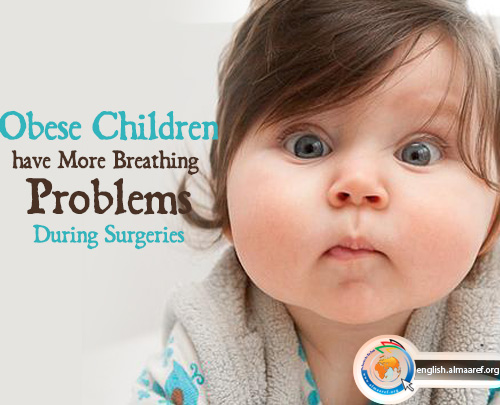Obese children are much more likely than normal-weight children to have
breathing-related problems during surgery, says a University of Michigan Health
System study.
The researchers, who looked at 1380 normal-weight, 351 overweight and 294 obese
children, aged two to 18 years, who had elective, non-cardiac surgery, found
that obese children had a higher rate of difficult mask ventilation, airway
obstruction, major oxygen desaturation (decrease in oxygen in the blood), and
other airway problems.
Specifically, the study found that:
19% of obese children and 11% of normal-weight children experienced major airway
obstructions.
Almost 9% of obese children and 2% of normal-weight children experienced
difficult mask ventilation.
17% of obese children and 9% of normal-weight children experienced major oxygen
desaturation.
Obese children also had higher rates of asthma (28% vs 16%), hypertension, sleep
apnoea and type 2 diabetes, all of which contribute to problems during surgery.
However, despite the increased risk of adverse events among the obese children
in this study, none suffered significant illness. The study was published in the
journal Anesthesiology in March 2008.
"Based on current trends, it is likely that anaesthesiologists will continue to
care for an increasing number of children who are overweight or obese, so it is
vital that we are aware of the higher risk they face in the operating room,"
lead author Alan R. Tait, a professor in the department of anaesthesiology at
the U-M Health System, said in a prepared statement.




















